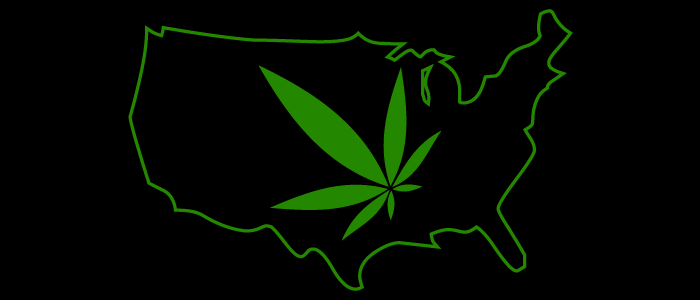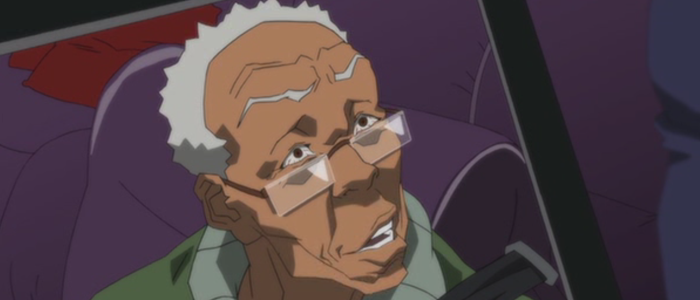As I read article after article regarding marijuana legalization, general and medical, I’ve come to the conclusion that it simply is NOT going to happen. Don’t get me wrong. It can happen. But, with the current mindset of marijuana legalization advocates, I have to admit, failure is inevitable.
First of all, who am I to say anything? Well, I’m a user (10 years). I’m also a grower (7 years). I’m a US citizen. I’m someone who doesn’t care to go to jail over a plant. And, I’m all for legalization. But, my question is not whether or not it should be legalized. And, some people have actually accused me of being for the criminalization of marijuana because I admit to being a grower. They make themselves believe that I want to keep prices arbitrarily inflated. I can only guess they imagine my three to five plants in the closet somehow supplies the entire Eastern US, go figure.
What I have a problem with is the WAY in which the legalization fight is being carried out. Basically, there’s a state to state effort to push medical marijuana. On its face, it’s good. It’s good for the terminally ill to be able to secure some pain relief. But, let’s be honest. A lot of people aren’t using medical marijuana for medical purposes. In fact, I don’t even use marijuana for medical purposes. Medical marijuana has become a pathetic toy tossed between advocates, who act like people aren’t going to abuse the system, and opponents, who think everyone is going to abuse the system. The truth is definitely somewhere in the middle.
Unfortunately, as any honest lawyer will tell you, even medical marijuana is still illegal under federal law. If it’s illegal under federal law, it’s illegal under state law. But, you have “activist judges” going against the grain with nonsensical opinions that amount to nothing more than an affront to the US Constitution. It’s pathetic. At the end of the day, people are still being imprisoned and/or outright murdered for a plant by people sworn to protect them.
The medical marijuana agenda has done more harm than good. It gives individuals the feeling that they’re protected. No one’s protected; they’re just ignored locally. It gives potential businesses the idea that they can operate with impunity. They’re being shutdown as I write this. Finally, it gives growers the idea that what they’re doing can’t be stopped. Plants are getting yanked daily. This is happening because this pseudo-legalization atmosphere has created the perfect climate for law enforcement to act.
In other words, medical marijuana has become nothing more than a scheme for entrapment at the national level. Sad to say, many of you have fallen for it, hook, line, and sinker. Law enforcement doesn’t have to spend time in a helicopter searching for farms. They don’t have to build relationships with growers on grow forums like ICMag or 420Magazine. They don’t have to catch distributors in large scale deals. All they have to do is sit back and wait as user, grower, and dealer all out themselves in news articles, documentaries, and Youtube videos.
But, I’m not writing this to be against medical marijuana. I’m condemning some marijuana advocates who don’t tell the truth to the users, growers, and dealers. The very reason many of us think medical marijuana is ok is because of the constant misinformation these people pass around. They talk about the 10th Amendment or State’s Rights to justify pseudo-legalization. They tell you to sign up to these registries. They tell you it’s ok to set up these businesses. They tell you it’s ok to grow within state law. None of it is true or honest. In fact, medical marijuana movement has done nothing more than help the DEA develop an environment of entrapment. I question some advocates’ motives, in whole. Seriously, since when do people need to sign up for registries to use medication? I can get a prescription for dilaudid (painkiller) just as easy as albuterol (asthma) but the government needs to know who I am and where I live if I want to use marijuana?
But, don’t assume that I think this is some grand conspiracy. My belief is, and I truly think this, these marijuana advocates, who have been leading the way, are stupid and short-sighted!! They’re so blinded by their own agenda that they don’t even realize they created a system of pure entrapment. If you’re law enforcement, it’s the best time to take advantage of the situation. This is why I refuse to listen to these advocates anymore. They’re not intelligent people. We can all sit here and talk about what we want to see happen. It’ll be a fun exercise in imagination. But, I prefer to see what’s happening not what I want to happen. People are dying over a plant. That’s what I see.
————–Take a break. Rest your eyes.————–
So, if the states’ rights strategy is an inevitable failure, how do we go about legalization, medical or recreational? What are the obstacles? And, how can we overcome those obstacles? First, we have to understand how we came to this point? Where does it really start?
It starts with a very mind-blowing realization about our US Constitution. For a long time, I thought, to alter the Constitution, you needed an amendment. Federal government doesn’t have any rights to do anything that’s not provided for by the US Constitution. For example, want to prohibit alcohol, you needed the 18th Amendment. Wanted to legalized alcohol after the fact, you needed the 23rd Amendment. So, how can the US government prohibit various forms of drugs without and amendment? Easy. It’s in the US Constitution, Article IV, Section 2, the Supremacy Clause. Let’s just take a look at it.
This Constitution, and the Laws of the United States which shall be made in pursuance thereof; and all treaties made, or which shall be made, under the authority of the United States, shall be the supreme law of the land; and the judges in every state shall be bound thereby, anything in the constitution or laws of any state to the contrary notwithstanding.
Yes, the US Constitution, the laws that US Congress makes based on the Constitution (including amendments), AND ALL TREATIES shall be the supreme law of the land. That doesn’t sound right. I don’t remember Mr. Roberts mentioning anything about treaty agreements becoming the supreme law of the land in Government class. They definitely don’t teach you that in college if you’re not in law school. But, this is important because it’s that tidbit that completely changes the game. A treaty has the power of an amendment. That means when the treaty is agreed upon, US Congress has to create legislation/laws to that effect. So, just like the 18th Amendment brought about the Volstead Act, the Single Narcotics Convention brought about the Controlled Substances.
WAIT WAIT WAIT.. I went too far ahead. Single Narcotics Convention? That’s the treaty that the US government agreed to with the United Nations in 1961 which brought about the Controlled Substances Act of 1970. I know, it doesn’t sound like a treaty. Usually, a treaty has the word treaty in it. But yes, that’s a treaty. You’d be smart to ask if there were any other treaties in which the US Congress is in agreement. Yes, there are countless treaties in force.
Quickly, why would it be more beneficial to agree to a treaty as opposed to pushing for an amendment? It’s the requirements. A treaty only requires 2/3 of the Senate to be in agreement. However, to ratify an Amendment to the US Constitution, you’ll need 3/4 of all individual state legislatures to agree to the Amendment, a much hard task to accomplish. With that, our Social Studies lesson is over.
Now, we have a better understanding of the obstacles that we face. We see, it’s much deeper than some states’ rights fight that some advocates ignorantly talk about. It’s why I think most marijuana advocates are stupid. It’s why I think state judges don’t do their job when they come up with pathetic opinions that clearly ignore the US Constitution. If this is how advocates think marijuana is going to be legalized, with the knowledge that it’s against federal law, they’re not just failing us all but they’re setting up others for failure unwittingly.
What are our REAL options for legalization? Like I’ve said, if marijuana is going to be legalized, it’s going to take place at the federal level. Either, US Congress opts out of the treaty agreement or we can find a way to work within the agreement, meaning a push for rescheduling of marijuana. This is why I am following four developments.
First, Americans for Safe Access vs DEA. This is another important case to watch because it directly targets the obstruction to re-scheduling of marijuana by the DEA. It could lead to a forced rescheduling of marijuana especially considering all of the medical evidence that proves marijuana is not only safe but effective as a treatment for various ailments. Once marijuana gets pushed into a lower schedule, it can be prescribed in all 50 states. See why I don’t care about state-level strategies. With one stroke of a pen, all 50 states can have medical marijuana programs instead of the ugly state by state nonsense through marginally corrupt judiciaries.
Second, USA vs Steele Smith. This is an important case to watch because it’s essentially the first time the courts will allow a medical marijuana defense. See, since Congress has taken the stance that marijuana is a Schedule I substance (no “accepted” medical value), the courts have generally been unable or unwilling to allow a medical defense. It’s moot. It’s a banned substance, can’t talk about. So, I am eager to see what happens when the court “unmoots” the medical defense. Unfortunately, the US government is dragging their feet as this case has been going on for years now.
Third, alter the original treaty. See, the Single Narcotics Convention and Controlled Substances Act might as well be copies of each other. The US, being the main proponent of the convention, is following it word for word. If marijuana is banned in the treaty, it’s going to be banned in the CSA. But, this method is probably more of a longshot than amending the US Constitution. There are powerful forces behind this treaty
Fourth, general international pressure. South America is turning the tide, nation by nation. As these nations push out their old Friedmanite regimes and consolidate their power, they’re becoming just as influential as the US, Russia, or China. That kind of power doesn’t simply get ignored. Crime and violence are major problems in the US-led international war on drugs. Trying to fight a major war, US-style, has always been a dumb idea. Uruguay is leading the way by offering to sell marijuana directly from the government. With this kind of pressure mounting in South America, the world is going to have to make some serious adjustments to their policies.
Personally, I believe marijuana will be legalized in the near future, probably within the next 5 years. Pressure is building within nations and between nations. The fact remains, you can not outlaw nature. Until legalization happens, my advice to all in the marijuana community, recreational or medical, go back underground. Don’t sign up to any registries. If you own a dispensary, shut it down. If you’re a patient, grow your own or find reputable dealers (they exist).
If you’re a grower, you need to think outside of the box and completely change the game. The future of marijuana growing (if we remain on this current course of self entrapment) is small indoor grow operations. That means, no more large grow facilities that can be targeted by a DEA shutdown, harming hundreds or thousands of other patients. It means, setting up grow operations in people’s homes. If the patient is not physically able, manage the grow op for them.
Lastly, if you’re a marijuana advocate pushing a states’s rights agenda, STOP IT! The states do not have any rights where the federal government already has laws. You are helping to create an environment where American citizens are getting hurt, en masse. Your focus should be ON getting marijuana out of the CSA so that it can be treated like alcohol and tobacco, not making others believe the nonsense you’ve come to make yourselves believe. It’s a delicate situation and you’re messing it up for all of us. People are getting hurt because of YOUR entrapment scheme. STOP IT!!
If you truly believe that, let US Supreme Court rule on it and stop hiding behind activist state judges that have sympathy for the cause and choose to ignore the US Constitution in their decisions.





